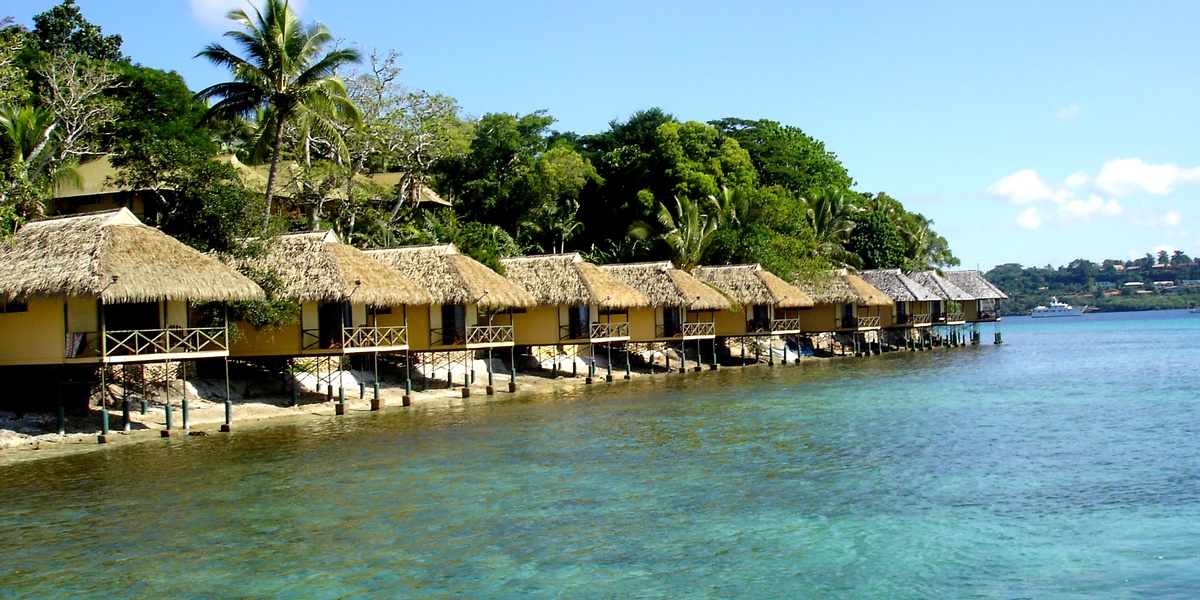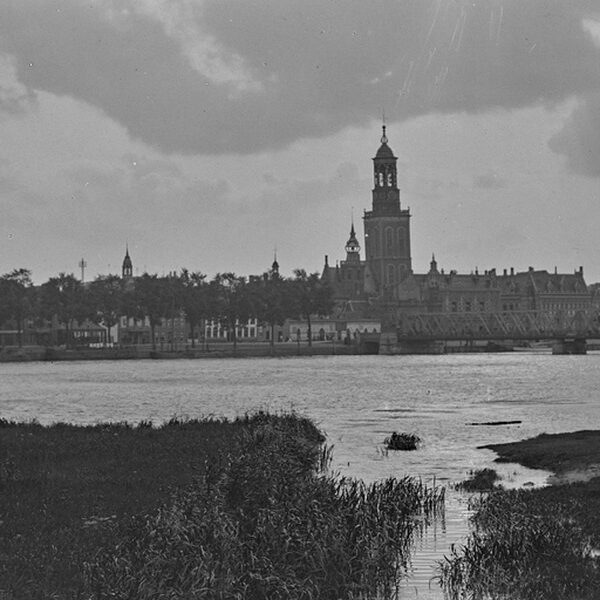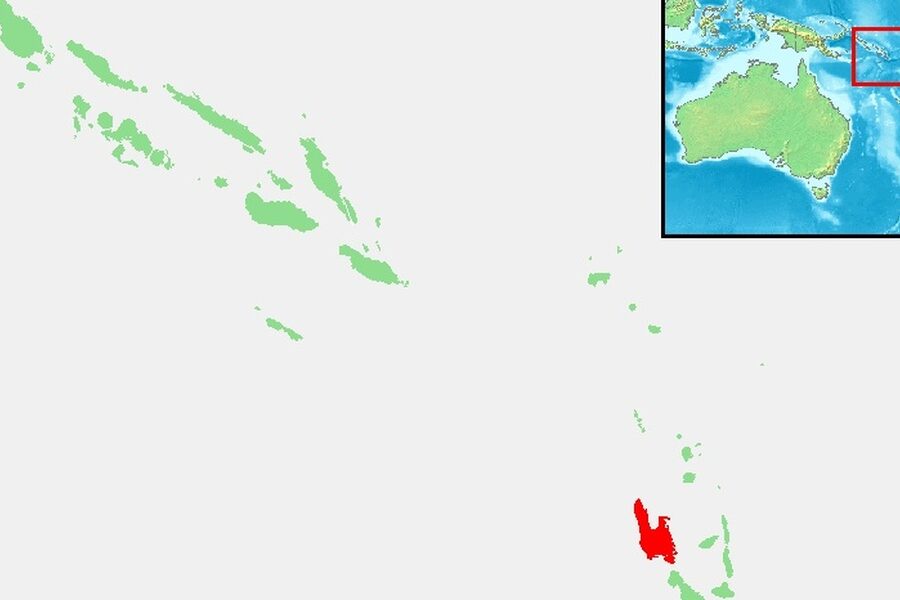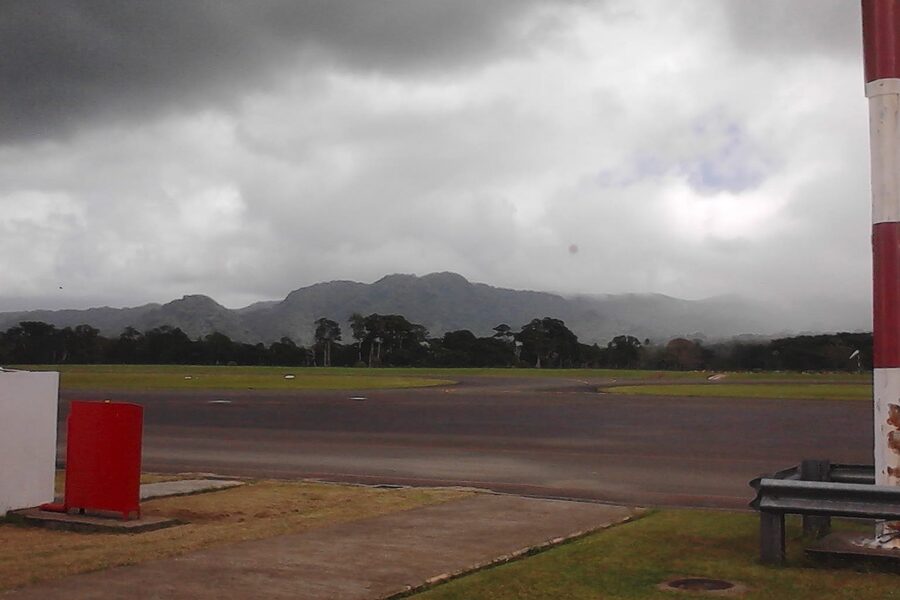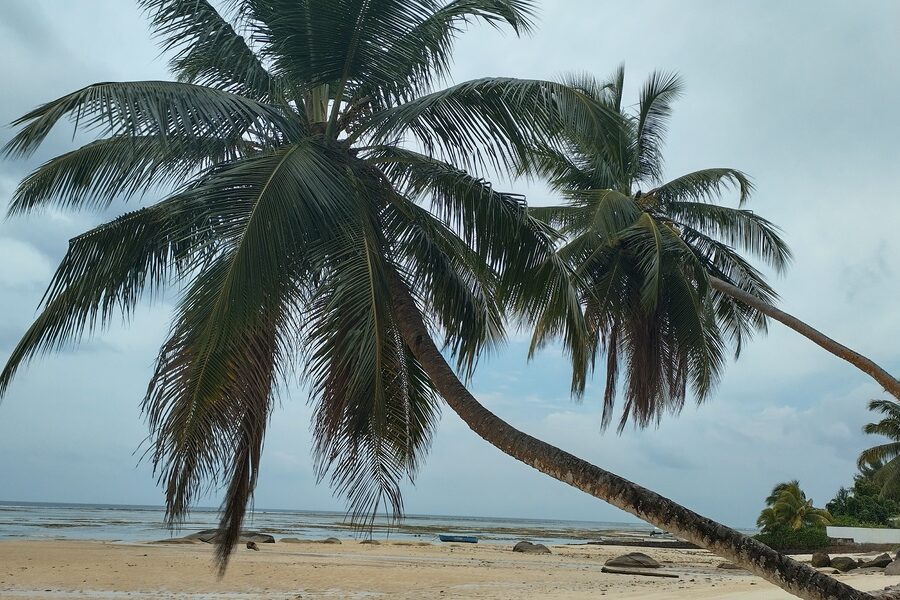Vanuatu’s islands are a mix of cultures and languages, with Bislama, English and French heard in markets, villages and on the ferries between islands. Learning a few local phrases makes everyday tasks—asking for directions, buying food or greeting hosts—smoother and more pleasant.
There are 60 Useful Phrases for Tourists in Vanuatu, ranging from Bas to Yes. Each entry is organized with English translation,Phonetic spelling,Usage / context so you can see what it means, how to say it, and when to use it — you’ll find below.
How should I use these phrases while visiting Vanuatu?
Start with greetings and simple questions, speak slowly, and smile—locals appreciate the effort even if pronunciation isn’t perfect. Use the phonetic spelling to practice before you go, keep the list handy on your phone for quick reference, and try phrases in short exchanges like ordering or asking directions.
Do these phrases cover common travel situations like markets and emergencies?
Yes — the list includes practical items for markets, transport, directions and basic emergencies, plus polite expressions. Memorize a few essentials, save the list offline, and combine phrases with clear gestures if needed.
Useful Phrases for Tourists in Vanuatu
| Phrase (Bislama) | English translation | Phonetic spelling | Usage / context |
|---|---|---|---|
| Halo | Hello / Hi | Hah-low | Greeting anyone, anytime |
| Gudmoning | Good morning | Good-moh-ning | Greeting people in the morning |
| Gudnaet | Good night | Good-night | Saying goodbye in the evening |
| Lukim yu | See you later | Look-im you | Casual goodbye to friends or acquaintances |
| Oraet? | Are you alright? / How are you? | Oh-right? | Casual greeting, checking in |
| Mi oraet | I’m alright / I’m good | Mee oh-right | Responding to “Oraet?” |
| Tank yu | Thank you | Tank you | Expressing gratitude for anything |
| Tank yu tumas | Thank you very much | Tank you too-mass | Expressing strong gratitude |
| Plis | Please | Plees | Making a polite request |
| Sori | Sorry / Excuse me | So-ree | Apologizing or getting attention |
| No wori | No worries / It’s okay | No wo-ree | Accepting an apology or reassurance |
| Yes | Yes | Yess | Affirmative answer |
| No | No | No | Negative answer |
| Mi no save | I don’t know | Mee no sah-veh | When you don’t have the answer |
| Mi no kasem | I don’t understand | Mee no kah-sem | When you can’t understand someone |
| Nem blong mi… | My name is… | Nem blong mee… | Introducing yourself |
| Wanem nem blong yu? | What is your name? | Wah-nem nem blong you? | Asking for someone’s name |
| Hamas? | How much? / How many? | Hah-muss? | Asking for price or quantity |
| Hamas long hemia? | How much is this? | Hah-muss long hem-ee-ah? | Asking for the price of an item |
| Wea? | Where? | Weh-ah? | Asking for a location |
| Wea … i stap? | Where is the …? | Weh-ah … ee stup? | Asking where something is located |
| Mi wantem go long… | I want to go to… | Mee won-tem go long… | Telling a taxi or bus driver your destination |
| Bas | Bus | Buss | Referring to a public bus |
| Taksi | Taxi | Tak-see | Referring to a private taxi |
| Epot | Airport | Eh-pot | Referring to the airport |
| Maket | Market | Mah-ket | Referring to the local market |
| Restoran | Restaurant | Res-to-rahn | Referring to a restaurant or eatery |
| Bich | Beach | Beetch | Referring to the beach |
| I go stret | Go straight | Ee go stret | Understanding or giving directions |
| Long raet saed | On the right side | Long right side | Understanding or giving directions |
| Long lef saed | On the left side | Long left side | Understanding or giving directions |
| Stop hia | Stop here | Stop hee-ah | Telling a driver to stop |
| Vatu | Vanuatu currency | Vah-too | Referring to the local currency (VUV) |
| Mani | Money | Mah-nee | Referring to money in general |
| Hemia i sas | This is expensive | Hem-ee-ah ee sass | Commenting on a high price |
| Hemia i jip | This is cheap | Hem-ee-ah ee jeep | Commenting on a low price |
| Mi wantem pem | I want to pay | Mee won-tem pem | When you are ready to pay for goods |
| Mi laekem hemia | I like this one | Mee like-em hem-ee-ah | Expressing preference while shopping |
| Kaikai | Food / To eat | Kai-kai | Referring to food or the act of eating |
| Mi hanggri | I’m hungry | Mee hung-gree | Expressing that you are hungry |
| Wota | Water | Woh-tah | Asking for water |
| Bia | Beer | Bee-ah | Asking for a beer |
| Kava | Kava (traditional drink) | Kah-vah | Referring to the traditional ceremonial drink |
| Bil | The bill / check | Bill | Asking for the bill at a restaurant |
| Helpem mi! | Help me! | Help-em mee! | In an emergency situation |
| Polis | Police | Po-leess | Referring to the police |
| Dokta | Doctor | Dok-tah | Referring to a doctor or medical help |
| Mi sik | I am sick | Mee sick | Informing someone you are unwell |
| Bigfala | Big / Large | Big-fah-lah | Describing something as large |
| Smol | Small | Smawl | Describing something as small |
| Gudfala | Good / Nice | Good-fah-lah | Describing something as good or nice |
| Nogud | Bad / No good | No-good | Describing something as bad |
| Wan | One | Wun | The number one |
| Tu | Two | Too | The number two |
| Tri | Three | Tree | The number three |
| Fo | Four | Foh | The number four |
| Faev | Five | Five | The number five |
| Ten | Ten | Ten | The number ten |
| Handred | One hundred | Hun-dred | The number one hundred |
| Tausen | One thousand | Tau-sen | The number one thousand |
Descriptions
Halo
The most common and friendly greeting in Vanuatu. You will hear it everywhere from the markets in Port Vila to remote villages. A smile and a “Halo” will always be well-received and is the perfect way to start any interaction.
Gudmoning
A slightly more formal but still very common greeting to use before noon. It is often followed by a friendly chat and shows respect, especially when greeting elders or someone in a professional setting.
Gudnaet
Used to say goodbye when departing in the evening or at night, similar to its English counterpart. It can also be used as a simple greeting if you meet someone late at night.
Lukim yu
This is the standard Bislama equivalent of “see you later.” It’s a warm and friendly way to end a conversation, implying you expect to see the person again soon. It’s less final than just saying “goodbye.”
Oraet?
This is a very common, informal way to ask “how are you?”. The expected response is usually “Mi oraet” (I’m alright). It’s more of a pleasantry than a deep inquiry, similar to “what’s up?”.
Mi oraet
The standard, positive response to “Oraet?”. It’s a quick and easy way to let someone know you’re doing well. You can follow it up with “tank yu” (thank you) to be extra polite.
Tank yu
A simple “tank yu” is always appreciated. Politeness is highly valued in Ni-Vanuatu culture, and expressing thanks for any service, help, or gift goes a long way in showing respect.
Tank yu tumas
Use this when someone has been especially helpful. The word “tumas” means “very” or “a lot,” so this phrase adds significant emphasis to your gratitude and is always very warmly received.
Plis
Just like in English, adding “plis” to any request is the polite way to ask for something. It is a simple word that shows respect and is essential for polite interactions.
Sori
A versatile word used for apologizing, for saying “excuse me” when passing someone, or to politely get someone’s attention before asking a question. It’s a soft and respectful term.
No wori
This is the classic, laid-back Bislama response to an apology. It means “it’s not a problem” or “don’t worry about it.” It reflects the relaxed and easy-going nature of the local culture.
Yes
Simple and direct, “yes” is used just as it is in English for any affirmative answer. It is universally understood across all islands and in all situations.
No
The Bislama word for “no” is exactly the same as in English. It is clear, direct, and understood by everyone. Use it for any negative response.
Mi no save
A very useful phrase for when you are asked a question and do not know the answer. It literally translates to “I don’t know” and is a perfectly acceptable response.
Mi no kasem
Use this phrase if someone is speaking too fast or if you’re confused. It literally means “I don’t catch it.” It is a polite way to ask for clarification or for someone to speak more slowly.
Nem blong mi…
The standard way to introduce yourself. “Nem blong mi” literally means “name belonging to me.” Follow it with your name to make friendly introductions with locals you meet.
Wanem nem blong yu?
The polite way to ask for someone’s name. It’s a great way to start a conversation and show you are interested in getting to know the person you are talking to.
Hamas?
An essential phrase for shopping at the markets or in stores. You can point at an item and ask “Hamas?” to inquire about its price. It can also be used to ask “how many?”.
Hamas long hemia?
This is a more specific way to ask for the price of a particular item you are holding or pointing to. “Hemia” means “this one.” It’s very useful in any shopping situation.
Wea?
A simple, one-word question to ask for directions. You can combine it with a place name, for example, “Wea maket?” (Where is the market?), to find your way around.
Wea … i stap?
This is the full, grammatically correct way to ask for a location. For example, “Wea hotel i stap?” means “Where is the hotel?”. It is polite and clear.
Mi wantem go long…
Use this phrase to clearly state your destination to a bus or taxi driver. For example, “Mi wantem go long epot, plis” (I want to go to the airport, please).
Bas
Public transport buses are a common and affordable way to get around Port Vila and Luganville. They are typically minivans with a ‘B’ on the license plate. You just flag one down.
Taksi
Private taxis are also readily available, especially in urban areas. They will have a ‘T’ on their license plate. They are more expensive than buses but offer direct, private transport.
Epot
This word is an essential one for arriving and departing. Whether asking a driver to take you there or asking for directions, “epot” is the universally understood term for the airport.
Maket
The “maket” is the heart of any town in Vanuatu. It’s where you can buy fresh produce, local food, and handicrafts. It is a vibrant and essential place to visit.
Restoran
If you are looking for a place to eat, this is the word to use. You can ask a local, “Wea i gat gudfala restoran?” which means “Where is there a good restaurant?”.
Bich
Vanuatu is famous for its stunning beaches. This is the word you will use when asking for directions to the nearest beach or telling a driver where you want to go.
I go stret
A key phrase for navigation. If you ask for directions, you will likely hear this. It’s a simple instruction that’s easy to remember and understand.
Long raet saed
This phrase means “on the right-hand side.” It is used for giving and receiving directions, helping you navigate your way around towns and villages.
Long lef saed
The counterpart to “long raet saed,” this phrase means “on the left-hand side.” Knowing both will make following directions from locals much easier.
Stop hia
When you’re on a bus or in a taxi and have reached your destination, you can use this simple phrase to tell the driver to stop and let you out.
Vatu
The Vatu is the official currency of Vanuatu. Prices in shops and markets will be in Vatu. It is useful to know the name of the currency when discussing prices.
Mani
The general term for money. You might hear someone ask, “Yu gat mani?” (Do you have money?). It’s a simple and widely used word.
Hemia i sas
If you think the price of an item is too high, you can use this phrase. While bargaining isn’t common in main stores, it can sometimes be done respectfully at handicraft markets.
Hemia i jip
The opposite of “sas,” this phrase means something is a good price. You can use it to express your satisfaction with the cost of an item or service.
Mi wantem pem
Use this phrase in a shop, restaurant, or market to indicate that you are ready to pay for your items or your bill. It is a clear and polite way to conclude a transaction.
Mi laekem hemia
When shopping, you can use this phrase to point out an item that you like. It’s helpful for communicating with vendors, especially at handicraft or souvenir stalls.
Kaikai
This is a fundamental word in Bislama. It can be a noun (food) or a verb (to eat). You will hear it constantly. For example, “taem for kaikai” means “time to eat.”
Mi hanggri
A simple and direct way to say that you need to eat. Locals can then point you towards a good place for “kaikai” (food).
Wota
An essential word, especially in a tropical climate. Use it to ask for drinking water. “Wan botel wota, plis” means “One bottle of water, please.”
Bia
Vanuatu has a popular local beer called Tusker. To order one, you can simply say “Wan Tusker, plis” or “Wan bia, plis.”
Kava
Kava is a famous ceremonial drink made from the root of the kava plant. It has relaxing effects. Trying it at a “nakamal” (kava bar) is a unique cultural experience.
Bil
When you’ve finished your meal and are ready to pay, you can get your server’s attention and simply say “Bil, plis?” to ask for the check.
Helpem mi!
This is a critical phrase for any emergency. It is a direct and urgent call for assistance that anyone will understand.
Polis
In case of a security issue or emergency, this is the word for police. You can ask someone, “Wea polis stesen i stap?” (Where is the police station?).
Dokta
If you are feeling unwell and need medical attention, this is the word to use. Ask for the “dokta” or the “klinik” (clinic).
Mi sik
A simple way to communicate that you are not feeling well. This can be used to explain why you need a doctor or need to rest.
Bigfala
A very common adjective used to describe anything big, from a “bigfala” fish to a “bigfala” problem. It adds emphasis and is used frequently in daily conversation.
Smol
The opposite of “bigfala,” this word is used to describe anything small. For example, “wan smol wota” would be a small bottle of water.
Gudfala
This is used to describe a person, place, or thing as being good. For example, “gudfala kaikai” (good food) or “gudfala man” (a good man). It’s a very positive word.
Nogud
The direct opposite of “gudfala.” It’s a simple and clear way to say something is bad, broken, or not right. For example, “weda i nogud” means “the weather is bad.”
Wan
The Bislama word for the number one. Essential for counting, shopping, and ordering.
Tu
The Bislama word for the number two.
Tri
The Bislama word for the number three.
Fo
The Bislama word for the number four.
Faev
The Bislama word for the number five.
Ten
The Bislama word for the number ten.
Handred
Used for prices and counting. For example, 500 Vatu would be “faev handred vatu.”
Tausen
Used for larger sums of money. For example, 2,000 Vatu would be “tu tausen vatu.”

